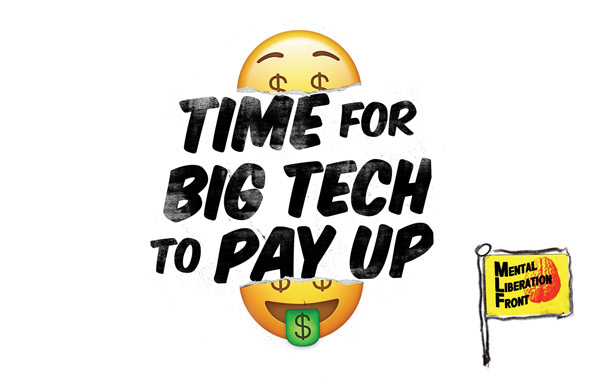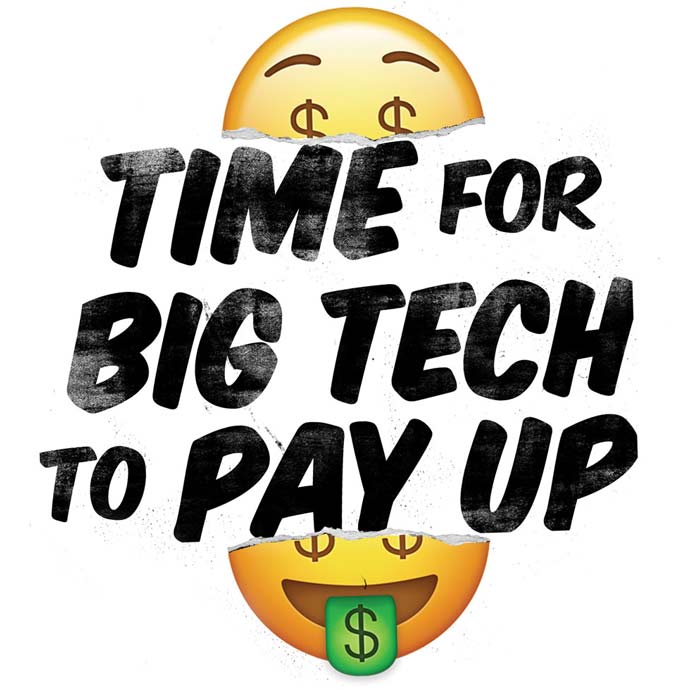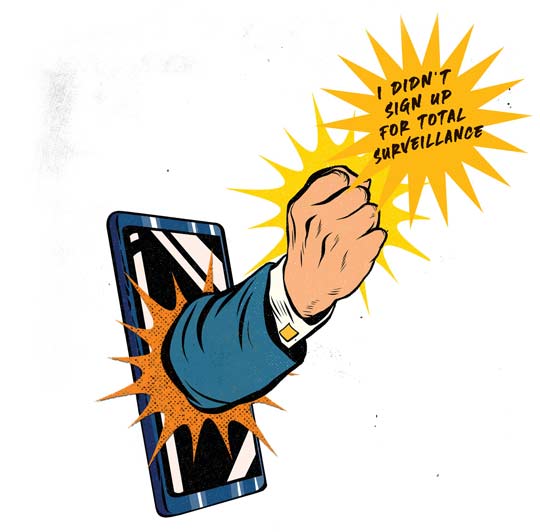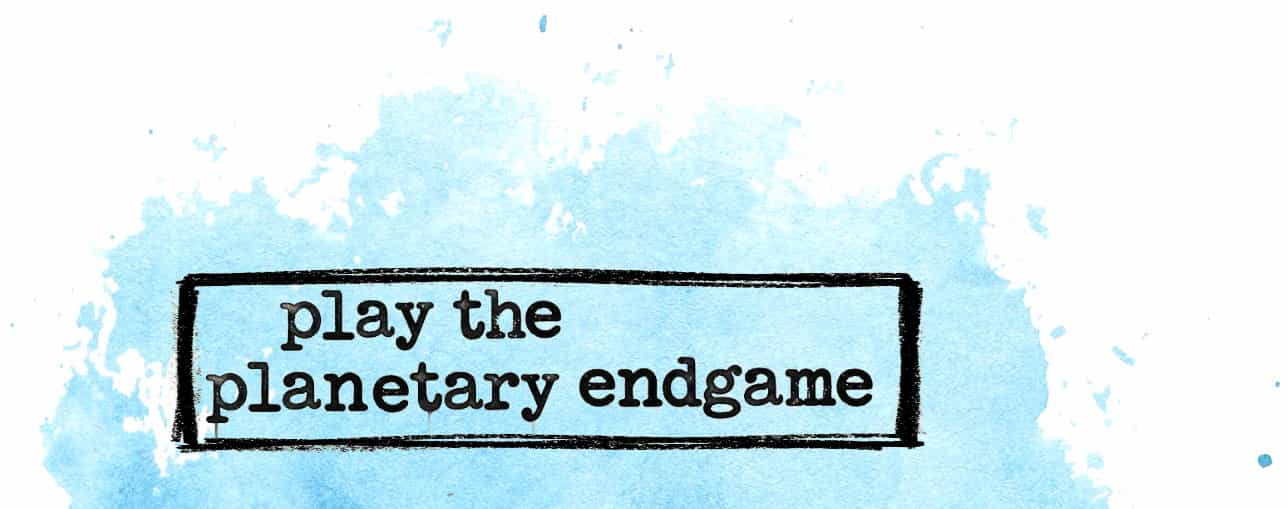Time For Big Tech to Pay Up


Once called the “fourth estate” for its power, crucial to democracy, to check the three official branches of government — legislative, executive, and judicial — journalism has suffered a hemorrhage of resources since the advent of the digital era. While social media became a vaster and faster channel for news, papers’ print circulations and advertising revenues dwindled, forcing major newspapers to go online and many smaller, local ones to shut down entirely. “Between 1970 and 2016,” Jill Lepore wrote last year in the New Yorker, “five hundred or so [American] dailies went out of business; the rest cut news coverage, or shrank the paper’s size, or stopped producing a print edition, or did all of that, and it still wasn’t enough.”
As publications made the timely switch from print to pixels, it was rarely questioned that the very same information would cost nothing at all to be disseminated on the Web. But with Big Tech companies such as Google and Facebook making big money off the fruits of an imperilled news industry, further ensuring its decline — Google made $4.7 billion in 2018 from third-party news, as reported by the News Media Alliance, while paying news outlets barely a penny — that assumption is now being challenged.
Enter Rod Sims, chairman of the Australian Competition and Consumer Commission. “The digital platforms need media generally, but not any particular media company, so there is an acute bargaining imbalance in favor of the platforms,” Sims told The New York Times. “This creates a significant market failure which harms journalism and so, society.”
Sims’ agency is at the helm of a pioneering effort to force technology firms to pay for the lucrative news peddled until now for free on their platforms. “Global tech companies are not beyond national laws,” he said, “especially when there is so much at stake.” Draft legislation is set to be completed by July.
The proposed new laws could hardly come at a more urgent time. Amid huge losses of revenue due to the coronavirus pandemic, already-strained publishers worldwide have furloughed or laid off many employees simply to stay afloat. Rupert Murdoch’s media empire, News Corp, put a temporary halt to the printing of 60 community newspapers across Australia, according to the Australian Broadcasting Company. Meanwhile, Facebook and Google are making enormous profits as millions browse in self-isolation.
Could this signal a wider wave of enforced accountability for Big Tech? Governments from Europe to Asia have taken note, perhaps heralding new protections for the fourth estate. But whether the laws, when they arrive, prove enough, or too little too late, it is too early to tell. It’s time, at any rate, that digital platforms pay up.

The protection of human freedom can no longer be thought of merely as a matter of traditional civil rights, the rights to speech, assembly, and voting that we’ve usually taken as the bedrocks of a free society. What we most urgently need is something else: protection against widespread behavioral control and advanced propaganda techniques. And that begins with completely rethinking how we control the collection of data.
That will require not a privacy statute, as some might imagine, but a codified anti-surveillance regime. We need, in other words, laws that prevent the mass collection of behavioral data. Most people think that privacy laws are in place to do this, but existing privacy laws, including the European privacy law, have done little to actually slow down the collection of data. Instead, they supposedly give us more control over when data is collected and how it is used, which in practice just means pop-up notices and the placing of some limits on how data is used. None of this is bad, but it doesn’t actually prevent surveillance. There is a reason that Facebook says it welcomes European-style privacy regulation.
A real anti-surveillance law would accomplish something different: it would stop the gratuitous surveillance and the reckless accumulation of personalized data. It would do that by allowing only the collection of data necessary to the task at hand: an app designed to help you mix cocktails would not, for example, be allowed to collect location data. Gratuitous surveillance would be banned — and after collecting data, firms would be forced, by default, to get rid of it, or fully anonymize the rest of it.
— Tim Wu, reviewing Shoshana Zuboff’s The Age of Surveillance Capitalism in The New York Review of Books

Join the Third Force Collective to access our revolutionary briefings.
This isn't a paywall. You can close it if you just want to read the article below it. But our aim is to win the planetary endgame — we want to catalyze a moment of truth, a stunning reversal of perspective from which corpo-consumerist forces never fully recover. For that we need you.






